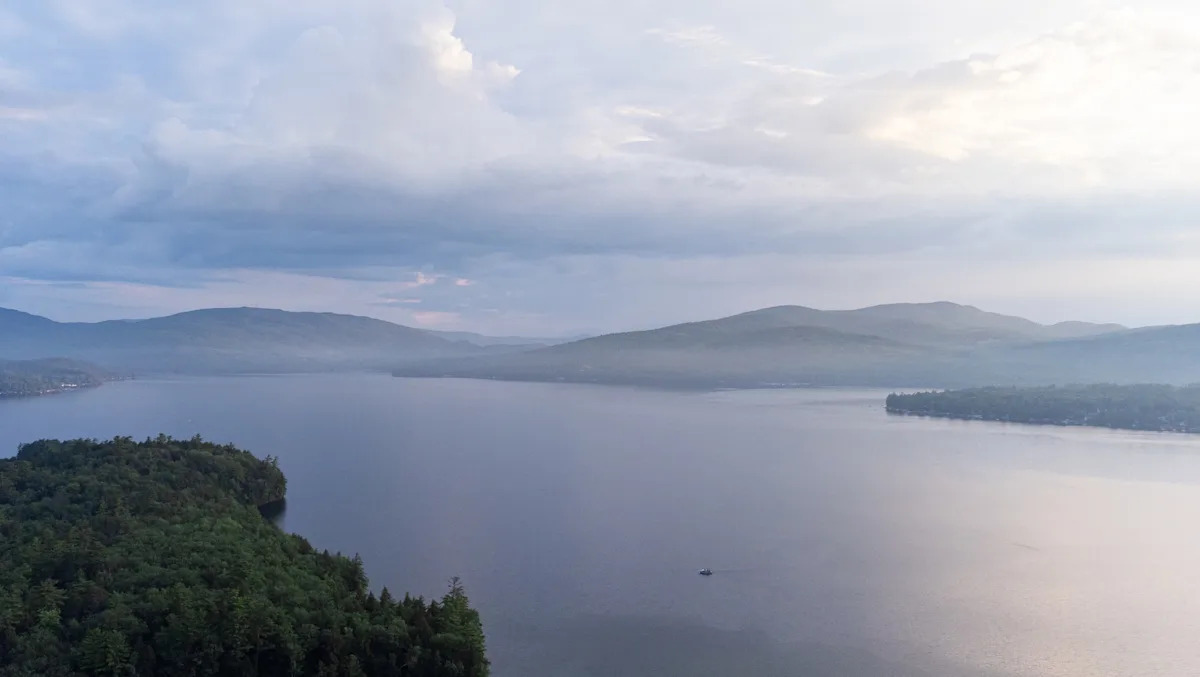An invader in one of New Hampshire’s beloved lakes has one scientist sounding the alarm and urging action to protect the state’s freshwater ecosystems.
What’s happening?
Researchers have confirmed the presence of spiny water fleas in Newfound Lake. The invasive species can wreak havoc on aquatic food webs and native fish populations.
The confirmation came after an angler posted a photo of the tiny, jelly-like crustacean on Facebook, according to the New Hampshire Bulletin.
Native to Europe and Asia, spiny water fleas likely entered U.S. waterways through contaminated ballast water in cargo ships. Though harmless to humans, their spread across the Great Lakes and now into New England poses a major ecological threat.
“All of a sudden, you’ve got millions,” said biologist Donn Branstrator of the University of Minnesota Duluth, per the Bulletin. “Their life cycle is short, and they reproduce fast, and, you know, trying to stop exponential growth is a difficult thing to do.”
Why are invasive species concerning?
The fleas feed on native zooplankton — tiny organisms that are crucial to the lake’s food web. Their invasion can cause zooplankton populations to dwindle, which in turn means the photosynthetic organisms they eat can grow unchecked.
This will lead to murkier, algae-filled water and less food for smaller fish to eat. In lakes where the fleas have spread, scientists have seen up to a 50% drop in native zooplankton and a 20% loss in biodiversity, which both indicate a struggling ecosystem, as Branstrator observed.
These disruptions ripple through the food chain, affecting fish like perch and walleye — key species for both ecosystems and local economies. In some cases, spiny water fleas have even caused physical damage to fish, with their sharp spines puncturing stomach linings.
What can we do about invasive species?
Unfortunately, there’s no known way to eliminate spiny water fleas once they’ve taken hold. Efforts now focus on preventing further spread.
Boaters and anglers are being urged to dry and disinfect their gear, as the fleas can cling to damp fishing lines and equipment for hours.
Researchers with the Newfound Lake Region Association, University of New Hampshire, and the Department of Environmental Services are studying the fleas’ effects and collecting long-term data to understand how the infestation will shape local lakes in the years ahead.
Experts also emphasize that the public can make a difference. Cleaning boats, draining water from equipment, and avoiding the transport of live bait between lakes are simple ways to help stop new infestations.
Protecting native species — from the plankton that support fish to the fish that sustain local communities — is essential for keeping freshwater ecosystems resilient.
Join our free newsletter for good news and useful tips, and don’t miss this cool list of easy ways to help yourself while helping the planet.

